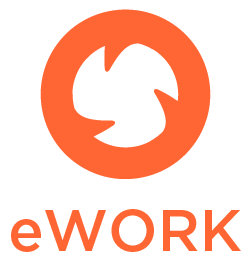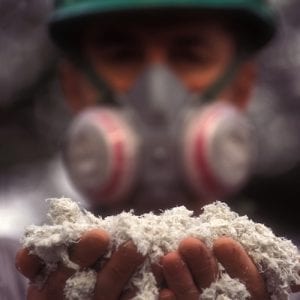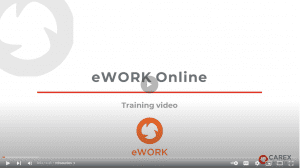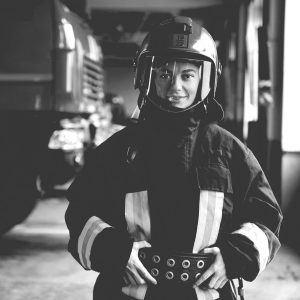
Fall 2022 e-Bulletin
IN THIS ISSUE
Spotlight on our updated interactive eWORK tool for exploring our occupational exposure estimates
Team updates – CAREX is pleased to welcome three new team members Disan Katende, Melanie Matté and Raissa Shrestha
Recent publications – Prevalence and level of occupational exposure to asbestos and an analysis of COVID-19 outbreaks in the workplace
Communications update – New video on how to use eWORK, recent stories from our Carcinogen in the News digest
SPOTLIGHT ON NEW INTERACTIVE TOOL
CAREX launches updated eWORK tool
We are pleased to announce that our newly updated eWORK tool is now available. eWORK is an interactive tool for exploring CAREX Canada’s occupational exposure estimates to carcinogens. This new version of the tool allows for improved, customizable queries, and offers more in-depth results than the previous version of the tool. Results show the number of workers exposed to these carcinogens nationally, by province, by industry, and by occupation for the new 2016 estimates. It can answer queries such as:
- What are the top carcinogen exposures in a particular industry?
- What are the main industries exposed to a particular carcinogen?
- How many workers are exposed to each carcinogen in a particular province?
eWORK can be accessed here or via the Resources tab on our website. More information about Canadians’ exposures to these carcinogens is available on the carcinogen profiles for each substance.
TEAM NEWS
CAREX added three new team members
The CAREX Canada team is pleased to welcome new team members Disan Katende, Melanie Matté and Raissa Shrestha.
Based in Vancouver at the University of British Columbia (UBC), Disan recently graduated from UBC with a Master in Public Health. His past experience includes working with health research teams in sub-Saharan Africa on electronic data capture and analysis. He also worked with the Health Data Research Network Canada (HDRN), and at British Columbia Children’s Hospital Research Institute. Disan’s background in research, public health, and data analysis is a great addition to the CAREX Canada team.
Melanie is located at the University of Calgary and most recently worked at University of California Los Angeles (UCLA) as a Program Manager with the Autism Intervention Research Network on Physical Health. Previously, she worked in the cancer screening program at Alberta Health Services. Melanie holds a Master in Public Health from UBC, and will be leading our collaborative work with Indigenous communities.
Raissa is also based in Vancouver at the UBC and recently graduated with Honours from the University of Toronto, with a Bachelor of Science in Cell & Systems Biology, Immunology and Statistics. Raissa worked as a Research Assistant with the Population Health Research Institute and McMaster University on an occupational epidemiology project, performing data analysis and collaborating on a systematic review, and she will be supporting our next update of our occupational exposure estimates.
Their full biographies can be found on the About Us page.
RECENT PUBLICATIONS
Prevalence and level of occupational exposure to asbestos and an analysis of COVID-19 outbreaks in the workplace
Our team recently published journal articles on CAREX-related research, including:
- The update of CAREX Canada’s asbestos prevalence of exposure estimates from 2006 to 2016, and an assessment of the level of occupational exposure by industry, occupation, province/territory, and sex.
- A media surveillance analysis to identify COVID-19 workplace outbreaks and associated transmission risk for new and emerging occupations in Canada and the United States.
A full list of our publications is available here.
COMMUNICATIONS UPDATES
New video on how to use the new eWORK tool
A new video on how to use CAREX Canada’s updated eWORK tool is now available. This video provides an overview of eWORK, an interactive tool that allows users to conduct custom queries of the CAREX Canada’s occupational exposure estimates to carcinogens. A full list of CAREX Canada videos and webinar recordings is available here.
Recent stories from our Carcinogens in the News digest
We’re featuring two stories that appeared in our Carcinogens in the News digest:
The Canadian Cancer Statistics: A 2022 special report on cancer prevalence shows in 2018, an estimated 1.5 million people alive in Canada had been diagnosed with cancer in the previous 25 years; approximately 60% of whom were diagnosed 5 to 25 years ago. The rising prevalence is also attributable to rising cancer incidence, or more cases diagnosed. It is estimated that 233,900 people will be diagnosed with cancer in 2022.
The World Health Organization’s (WHO) International Agency for Research on Cancer (IARC) evaluated the carcinogenicity of occupational exposure as a firefighter. The Working Group classified occupational exposure as a firefighter as carcinogenic to humans (Group 1), on the basis of sufficient evidence for cancer in humans for mesothelioma and bladder cancer. There was limited evidence for cancer in humans for colon cancer, prostate cancer, testicular cancer, melanoma of the skin, and non-Hodgkin lymphoma.
You can subscribe to our monthly Carcinogens in the News digest here.
Please note that the CAREX Canada e-Bulletin is now a bi-annual digest. For more regular communications from us, please subscribe to Carcinogens in the News, a monthly digest of media articles, government reports, and academic literature related to the carcinogens we’ve classified as important for surveillance in Canada.
Subscribe to our newsletters
The CAREX Canada team offers two regular newsletters: the biannual e-Bulletin summarizing information on upcoming webinars, new publications, and updates to estimates and tools; and the monthly Carcinogens in the News, a digest of media articles, government reports, and academic literature related to the carcinogens we’ve classified as important for surveillance in Canada. Sign up for one or both of these newsletters below.
CAREX Canada
School of Population and Public Health
University of British Columbia
Vancouver Campus
370A - 2206 East Mall
Vancouver, BC V6T 1Z3
CANADA
As a national organization, our work extends across borders into many Indigenous lands throughout Canada. We gratefully acknowledge that our host institution, the University of British Columbia Point Grey campus, is located on the traditional, ancestral and unceded territories of the xʷməθkʷəy̓əm (Musqueam) people.







